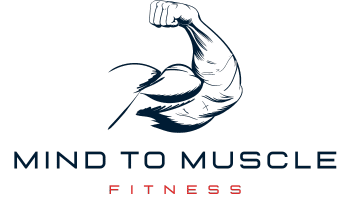
How to Make Insane Gains with Reverse Pyramid Training
Why Reverse Pyramid Training could be your workout salvation
It starts with intensity. Unlike conventional methods, RPT begins with your heaviest set when your energy stores are brimming. Each following set decreases in weight, allowing for more reps as fatigue sets in. It’s all about smarter energy utilization and shocking your muscles into growth.
This potent technique is not just for the seasoned lifter; beginners and intermediates can witness transformative results too. With proper form, progressive overload, and ample recovery, RPT could catapult your strength and size to staggering heights. But here’s the clincher: knowledge is power. Understanding the nuances, the progression, and the timing can make a vast difference in your journey.
To harness the full power of Reverse Pyramid Training, it’s crucial to delve into the specifics. From optimal rep ranges for different exercises to the secret behind rest intervals that enhance recovery, this guide promises to reveal how to manipulate these variables for maximal output. Intrigued by the promise of redefining your limits naturally?
Prepare to be equipped with actionable strategies that will redefine your workout regimen. Embrace the wisdom of Reverse Pyramid Training, and watch as your muscular potential unfolds, ushering in an era of insane gains without ever relying on the crutch of performance-enhancing aids. This is muscle architecture at its most refined. Lean in, because the next pages are poised to turn your fitness ambitions into tangible reality.
Key Points: Reverse Pyramid Training
- Begin with Heaviest Weights
- Decrease Weight Each Set
- Short Rest Periods
- Intense and Efficient Workouts
- Increased Strength and Muscle Gains
Benefits of Reverse Pyramid Training
Reverse Pyramid Training (RPT) offers a range of advantages. Primarily, it allows for lifting heavier weights when your energy levels are at their peak. This emphasizes strength gains. The progressive decrease in weight with each subsequent set acts as a built-in warm-down, reducing the risk of injury. Additionally, RPT can improve muscle engagement and endurance as the lighter sets allow for greater focus on form and technique. When comparing pyramid sets vs straight sets, pyramid sets, like those used in RPT, are often favored for their ability to combine intensity and volume in a single workout. This method also introduces variety, keeping training sessions more engaging and less monotonous.
By targeting muscles with a high intensity straight away, you also elicit a strong muscle-building stimulus. Plus, RPT can be time-efficient, making it ideal for those with limited gym time. It encourages a high level of muscular fatigue, which is key for hypertrophy. Finally, shorter rest periods keep the heart rate up, potentially improving cardiovascular fitness and burning more calories.
Step-by-Step Guide: Making Gains with Reverse Pyramid Training
- Choose a Compound Lift: Start with a heavy compound movement like squats or bench presses.
- Determine Your Heaviest Set: After a warm-up, lift the heaviest weight you can manage for 4-6 reps.
- Second Set: Reduce the weight by 10% and aim for 6-8 reps.
- Third Set: Decrease the weight again by a further 10% and perform 8-10 reps.
- Rest Periods: Keep rest between sets to about 1-2 minutes to maintain intensity.
- Repeat for Other Exercises: Follow the same pattern for 2-3 more movements in your routine.
For example, if you start your bench press at 200lbs, your following sets might look like 180lbs and then 160lbs, maintaining strict form at each stage.
Common Mistakes and Avoidance Strategies
Overestimating Initial Load: Beginners often start too heavy, compromising form. Warm up properly to find a challenging yet manageable starting weight.
Insufficient Recovery: Allow your muscles adequate rest between workouts, especially after the intensity of RPT.
Neglecting Form: Never sacrifice technique for heavier lifts. RPT’s effectiveness relies on proper execution.
Skipping Warm-ups: An appropriate warm-up prepares muscles, reduces injury risk, and enhances performance.
Ignoring Progressive Overload: Consistently increase your weights or reps to continue making gains.
Effectiveness of Reverse Pyramid Training
My gym buddies and I have integrated RPT into our routines. It’s led to notable strength improvements over just a few weeks. For instance, one friend increased his deadlift max by over 10% after a month. My own experience confirms the efficiency of RPT — significant boosts in both strength and muscle definition without spending hours in the gym.
While individual results can vary, RPT has consistently proven to be a powerful tool for making real, measurable gains in strength and muscle size. As someone who stays clear of steroids, it’s empowering to find natural methods that facilitate such remarkable progress.
Advanced Strategies for Reverse Pyramid Training
Reverse Pyramid Training maximizes strength and hypertrophy. Start with the heaviest set, then decrease weight. This strategy conserves energy for the most challenging lifts. Focus on compound exercises like squats, deadlifts, and bench presses. Compound movements trigger significant muscle recruitment, vital for natural bodybuilders.
Employ strict form and controlled repetitions. Precision is key in Reverse Pyramid Training. Each rep should be meticulous. Avoid injury by warming up properly. Activate your muscles with lighter sets before your maximum lift.
Variations of Reverse Pyramid Training
Customize Reverse Pyramid Training to fit your goals. Adjust the rep range:
– For strength, keep reps low (4-6).
– For hypertrophy, opt for moderate reps (6-12).
Alter the weight decrement. Use smaller reductions for endurance, larger for strength. Switch the focus by rotating the exercises you begin with. Change the order every few weeks to prevent plateaus.
Integrating Reverse Pyramid Training with Other Methods
Combine Reverse Pyramid Training with other protocols for diversity. Mix it with periodization techniques. Start a macrocycle with volume training, then peak with Reverse Pyramid Training. For variety, blend in unilateral exercises or work with different resistance tools like bands.
Nutrition and Recovery for Reverse Pyramid Training Users
Nutrition fuels growth. Consume high-quality proteins for muscle repair. Balance your diet with complex carbohydrates and healthy fats. Hydration is crucial — drink plenty of water.
Recovery is integral for gains. Aim for 7-9 hours of sleep daily. Include rest days in your schedule. Consider active recovery — walking or light swimming can enhance muscle recuperation.
Expert Insights on Reverse Pyramid Training
I would call myself expert and I can recommend progressive overload with Reverse Pyramid Training. “Increase the weights intelligently,” is my advise. Over time, this produces substantial strength increases. Rest sufficiently between sets. My suggestion is 2-3 minutes for optimal muscle recovery.
Focus on the eccentric phase, or lowering the weight. Time under tension is key for muscle growth. By emphasizing the eccentric part, you engage muscles thoroughly without a need for excessive volume.
Use Reverse Pyramid Training periodically. It’s intense and should not be overused. Cycle it throughout the year to prevent burnout and overtraining.
FAQs About Reverse Pyramid Training
Can beginners start with reverse pyramid training?
Yes, beginners can use this method, but it is crucial to learn proper form and start with lighter weights to avoid injury.
How often should I do reverse pyramid training?
Implementing it 2-3 times per week allows for sufficient recovery, which is vital for muscle growth.
Is reverse pyramid training better than traditional sets?
It focuses on high-intensity work early on, when you have the most strength, which can lead to more significant gains.
What if I can’t lift heavier weights in the first set?
Always listen to your body. It’s vital to prioritize safety over ego and lift an appropriate weight that maintains form.
Should diet be adjusted when doing reverse pyramid training?
Yes, adequate nutrition and protein intake are essential for recovery and muscle growth.
Unleash Your Potential With Reverse Pyramid Training
Unlock significant gains by adopting the principles of reverse pyramid training. This method prioritizes starting with your heaviest set, tapping into peak energy levels to maximize muscle stimulation. Embrace the power of progressive overload, harnessing a decline in weight for subsequent sets to thoroughly work your muscles.
Remember, achieving insane gains requires more than lifting strategies. A solid foundation of nutrition, restorative sleep, and disciplined recovery periods are integral to maximizing reverse pyramid training results. Consistency and dedication in these areas will compound the benefits of your workouts.
Challenge yourself to integrate reverse pyramid training into your routine consistently. Stay persistent, adhere to proper technique, and fuel your body intelligently. Witness personal transformation, as this powerful approach amplifies strength, endurance, and muscle hypertrophy.
Take these insights and propel your fitness journey forward. Allow the structure of reverse pyramid training to guide you towards your goal of an extraordinary physique. Commit, train smart, and prepare to make those insane gains a reality.



